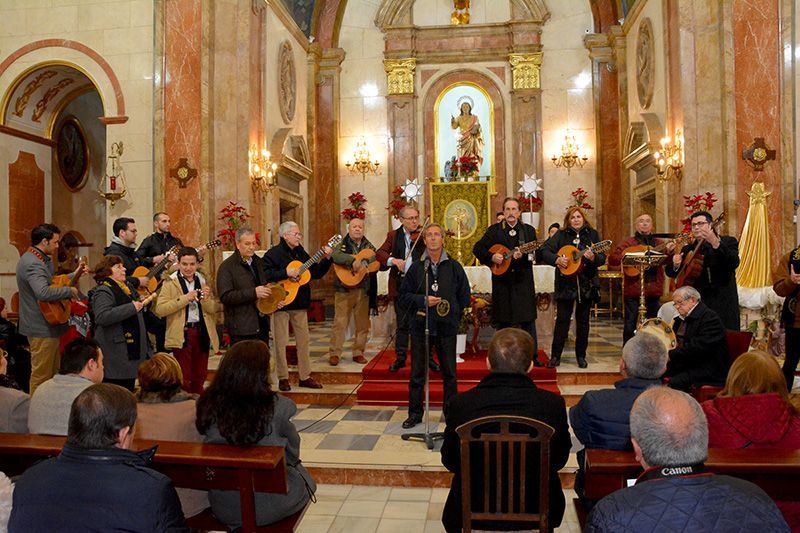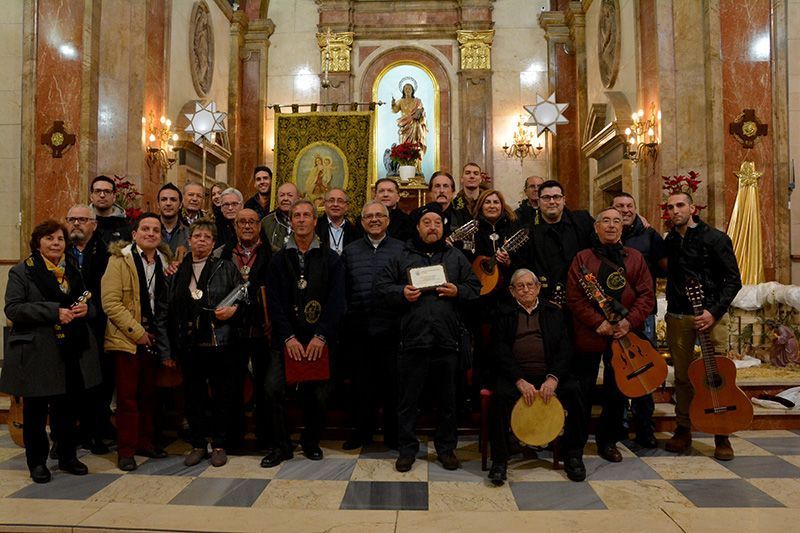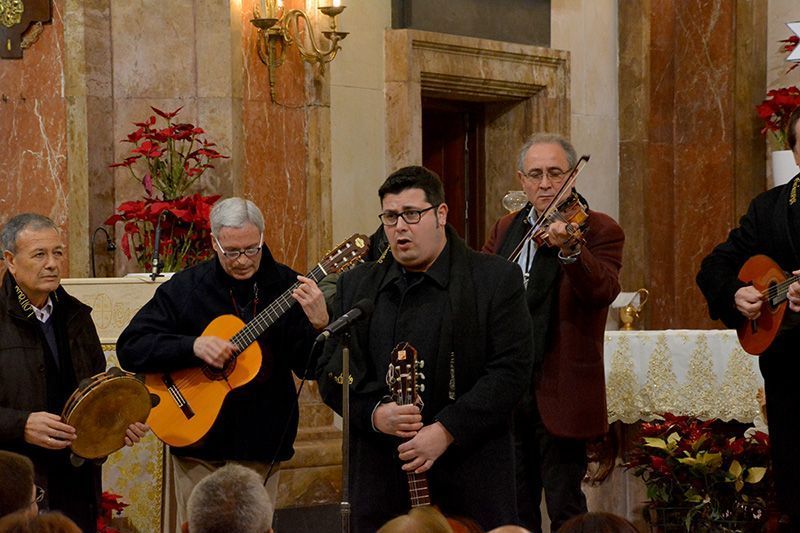The Farewell of the souls is celebrated in Blanca on the 6th of January (Epiphany).
During the whole Christmas, the "cuadrillas", presided over by the banner with the picture of the Virgen del Carmen (the advocate of purgatory) go from house to house in the different hamlets and streets of the locality; once they arrive there, the brother carrying the alms bag asks if they want some music in exchange for help for the souls. If they claim they want to hear the “cuadrilla” three or four coplas and "la despedía" are played.
On Epiphany Day, the final stage begins in the Chapel of "La Milagrosa", and then they go through the streets near the parish church until the end of the trajectory. On this day all the members of the "cuadrillas" join together in one group and the people of the village join in. On arrival at the parish church, the "cuadrilla" stands at the foot of the main altar and begins the "despedía", which is sung in two different parts:
-
The first is a series of verses about the prayers of the souls in purgatory to be rescued.
-
In the second they give thanks to the saints for the end of the suffering of these souls.
- Finishing coplas of "despedía".
Once the farewell is over, the phrase: "¡Salud para el año que viene!" ("Good health for next year!") is said.
The Church, at the Council of Florence (1493), officially promulgated the doctrine of Purgatory, but it was at Trent that the Church recognised its existence (3-XII-1563) and established that prayer, almsgiving, offering sacrifices and masses were necessary to help the souls suffering there. With the aim of helping the souls to leave Purgatory, the "Cuadrillas de Ánimas" arose, which offered this service by means of couplets of four eight-syllable verses (octosyllabic) with assonant or consonant rhyme in the second and fourth, leaving the first and third free.
In the past, in Blanca, people used to go to the countryside with donkeys, which were provided with their "aguaeras" and cages to deposit the material alms that they donated; it took two days as it was done, as can be understood, on foot. On their return, the elder brother would be waiting to present them with a bowl of cabbage and paprika, some chickpeas and the "porrón" of wine.
On feast days, sweet limes and lemons were given at the door of the church, just after the main mass, and the animals (chickens, rabbits, pigeons...) that had been brought from the countryside were auctioned, a brother would hold the animal in his arms and sing the bidding bid, if another citizen outbid him he would sing the last bid; if there was no higher bid he would take the animal to the house of the highest bidder and collect the amount offered.
Nowadays, as well as going around the village with the "cuadrillas" at Christmas time, every Sunday and public holiday in Blanca, a brother wearing a cape and bell is present at the exit of the masses to collect donations and then goes around the village for the same purpose.
Text by Ángel Ríos Martínez, Official Chronicler of Blanca.




